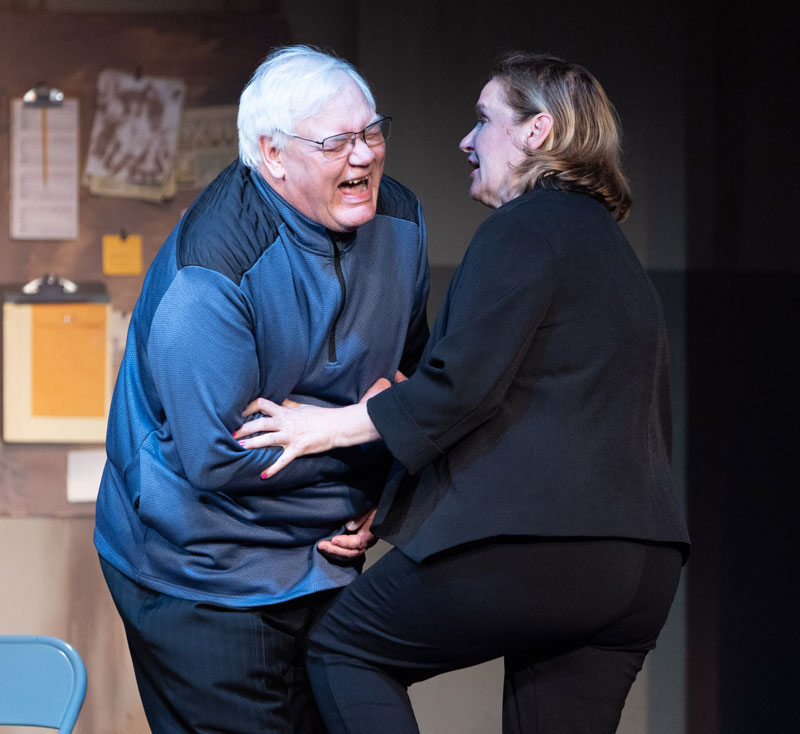Written by Adreanna Limbach
Gentle reader, it seems like in recent mornings when I sit down with my morning coffee to skim the news of the day, there is some new headline warning us about the potential ills of modern technology. Social media contributes to depression! Chat GPT will make your job obsolete! The threat of AI destroying humanity should be taken as seriously as global warming!
This climate of anxiety around AI and the impact of living increasingly online gives The Nether, now showing at Ghent Playhouse through June 18th, a particularly topical flavor.
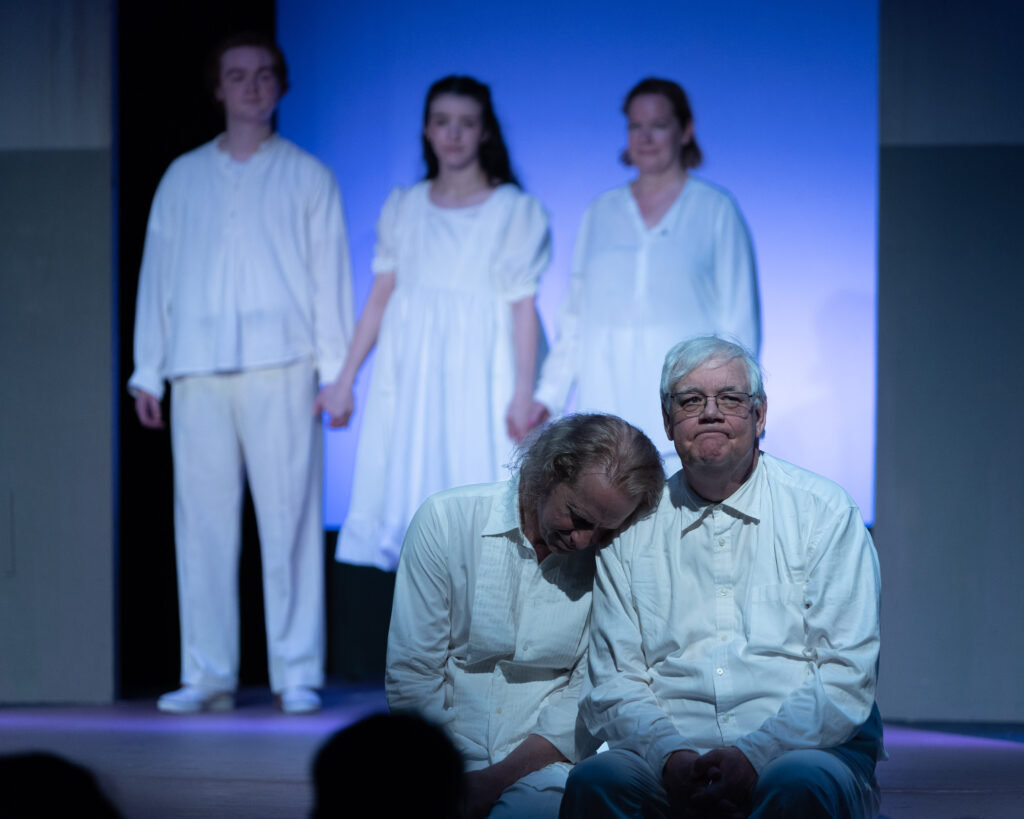
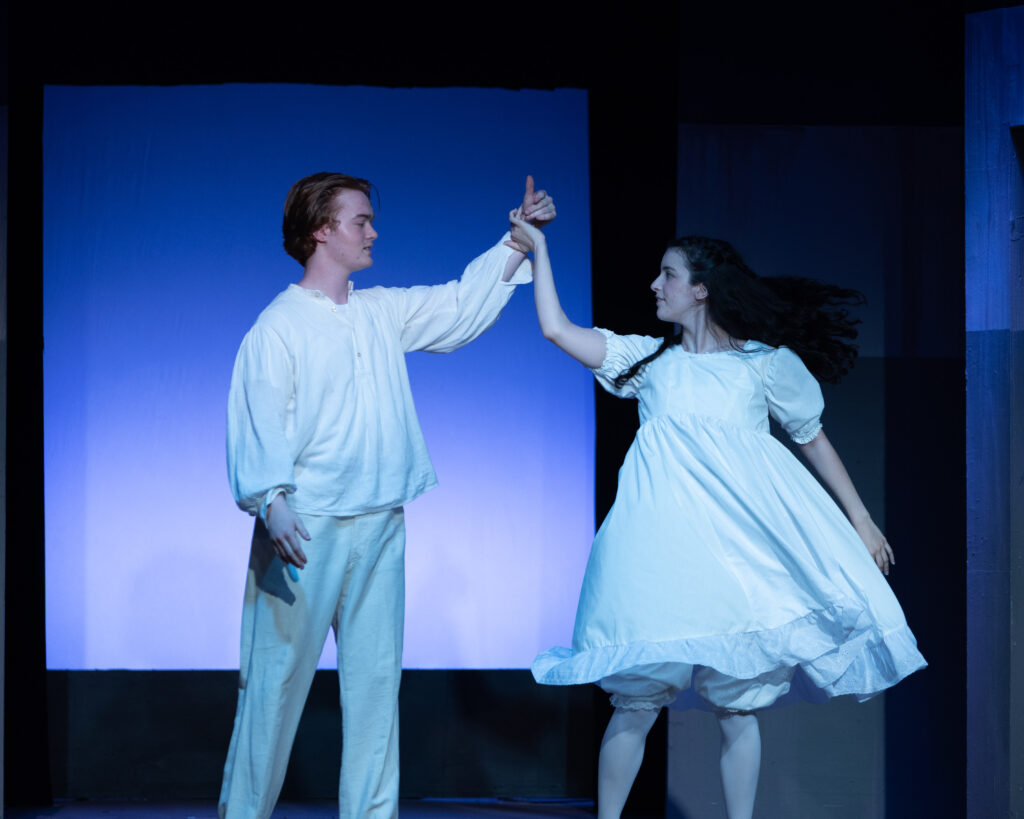
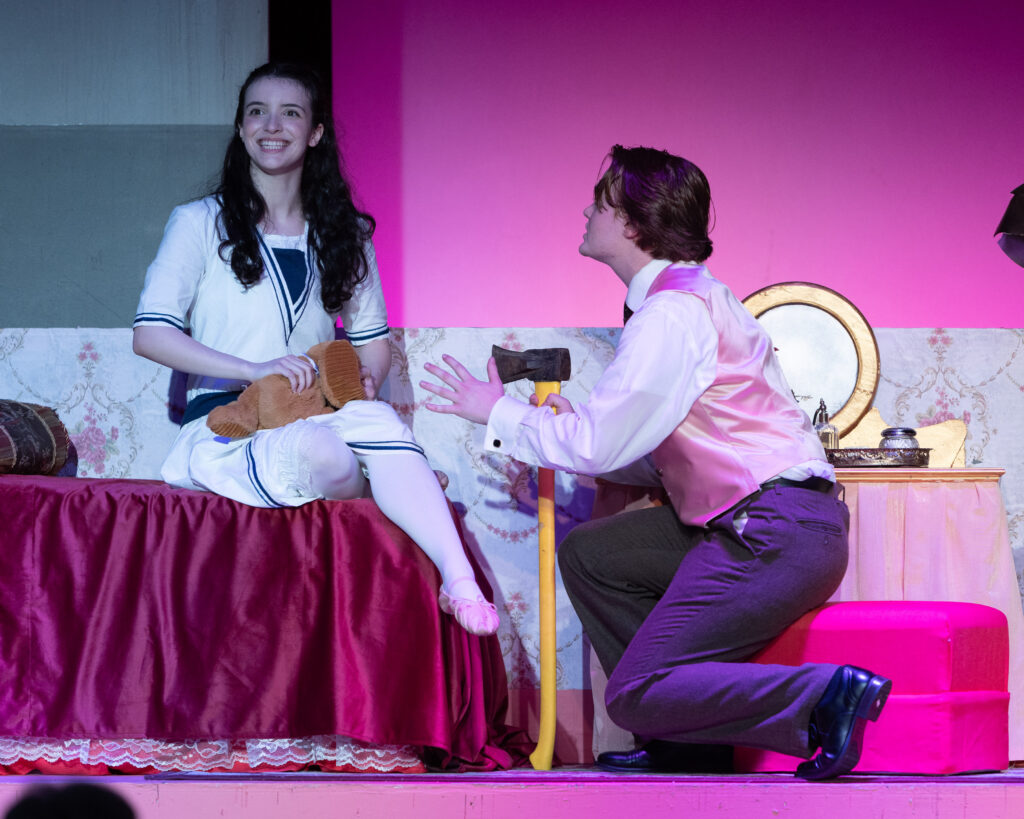
Billed as a sci-fi crime drama, The Nether is set in a not-so distant dystopia where we have successfully wrecked the environment, and have largely retreated into an online world that smacks of what Mark Zuckerberg WISHES the Metaverse could be. This online world, The Nether, is where we now work, educate our children, live and socialize. Like any robust society, this is also where we get our rocks off, in seedy joints developed to satisfy our desires. This leads us to where the central action of our show takes place, in a corner of The Nether called The Hideaway, where patrons pay to molest and murder children.
Yes, gentle reader, you read that correctly. I contemplated being more discreet in my delivery, however I want to respect that for some of us, depictions of child grooming, rape and murder are not philosophical springboards for an enlivening night of local theater, but a potentially disturbing non-starter. So there you go. The cards are on the table. Moving on.
Fans of the HBO series Westworld might recognize some of the central questions of morality that The Nether revolves around, questions that are created when human predilections rub against a largely manufactured, technological world. Questions such as : is it possible to create an entirely consequence free space? Who do we have the freedom to become (for better or worse) under the subterfuge of our online avatars? Are our actions harmful if no living beings are actually harmed? And how does our participation in a manufactured world inform our participation in the “real” world (and vice-versa)?
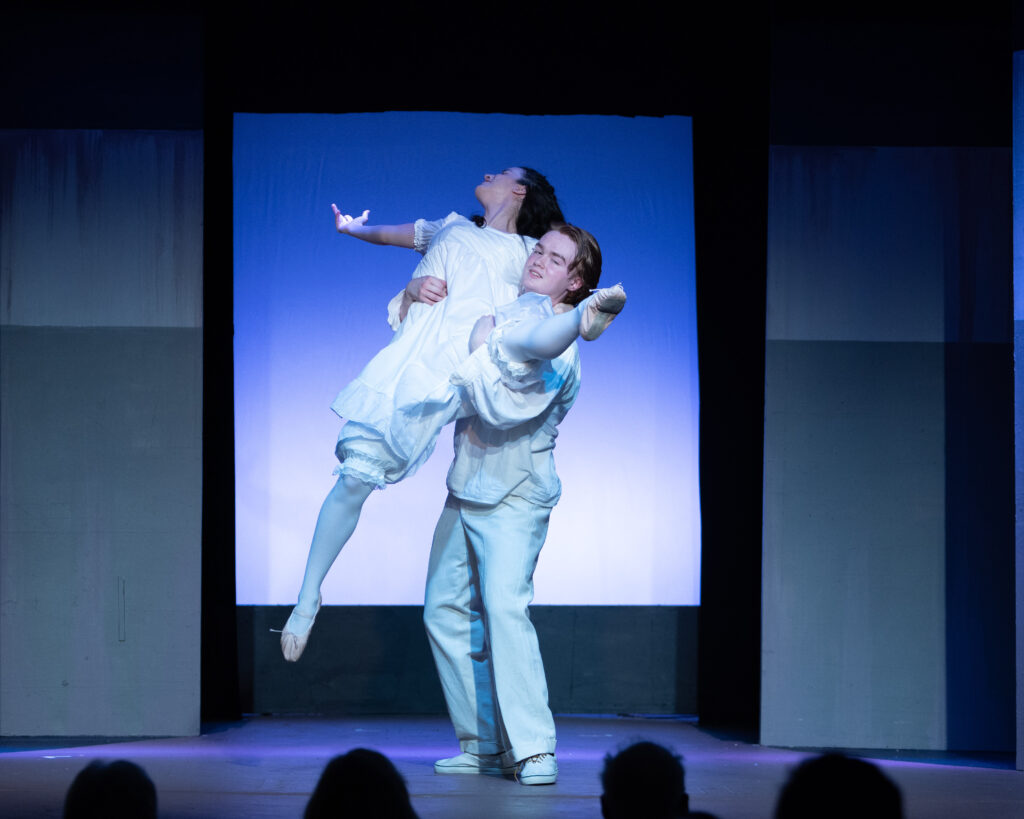
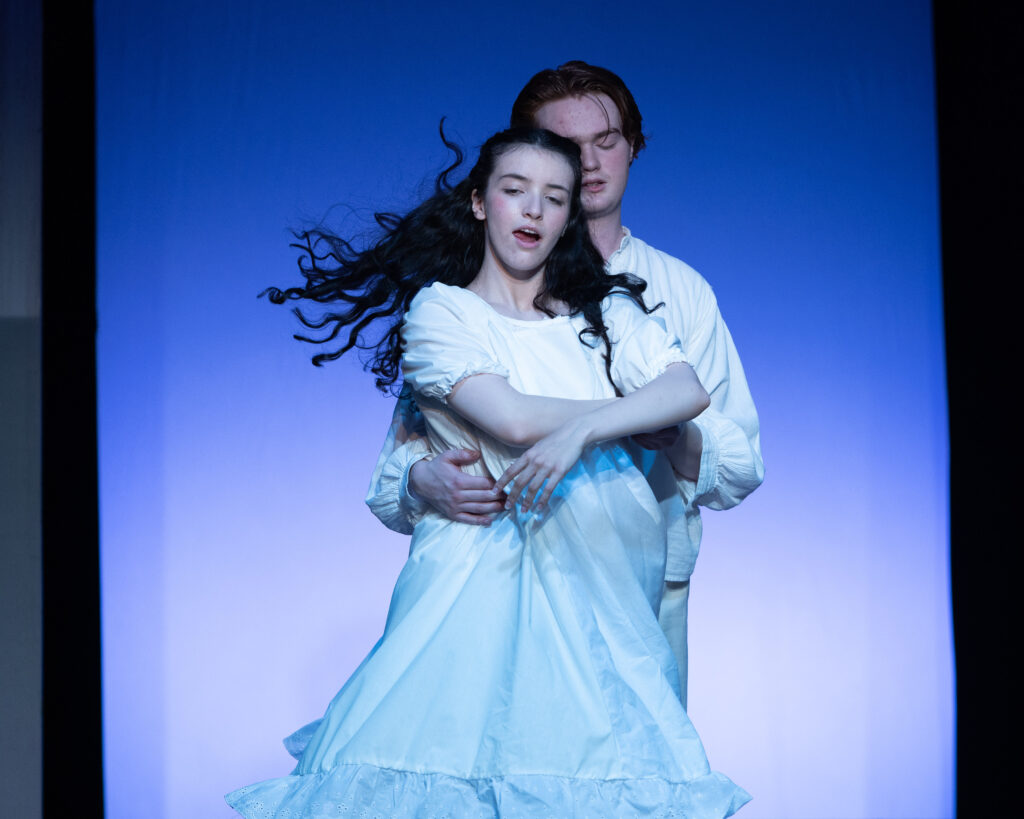
The cast of The Nether does a phenomenal job of building out this world ( this entire REALITY, really) with only five cast members, a minimal set and no special effects. Detective Morris, played by Amy Hausknecht, connects with the audience in such a way that I found myself looking through her eyes for most of the show. George Filieau toggles seamlessly between his split characters of Sims/Papa, bringing distinct life to each of them through clear vocal and physical choices. Aidan White adds a refreshing innocence to his Mr. Woodnut that contrasts nicely with the darker themes of the show. Neal Berntson who plays Doyle, is just fun to watch, as he cycles through a spectrum of emotions in any given scene. And Aaliyah Al-Fuhaid perfectly carries the challenging task of embodying precocious nine year old, Iris.
Is The Nether a fun, springtime romp that will be enjoyed by the whole family? Ummm, no. If that’s what you’re looking for in local theater, save yourself for 42nd Street at the MacHaydn in a few weeks. However, it does offer a number of weighted questions for our times, and left me with a kind of sticky residue that’s been a conversation starter all week. In short, if your definition of a good show is that you leave feeling something, gentle reader, get yourself to the theater.
The Nether plays at the Ghent Playhouse, Route 66 in Ghent, NY through June 18. For tickets and information go to ghentplayhouse.org.

